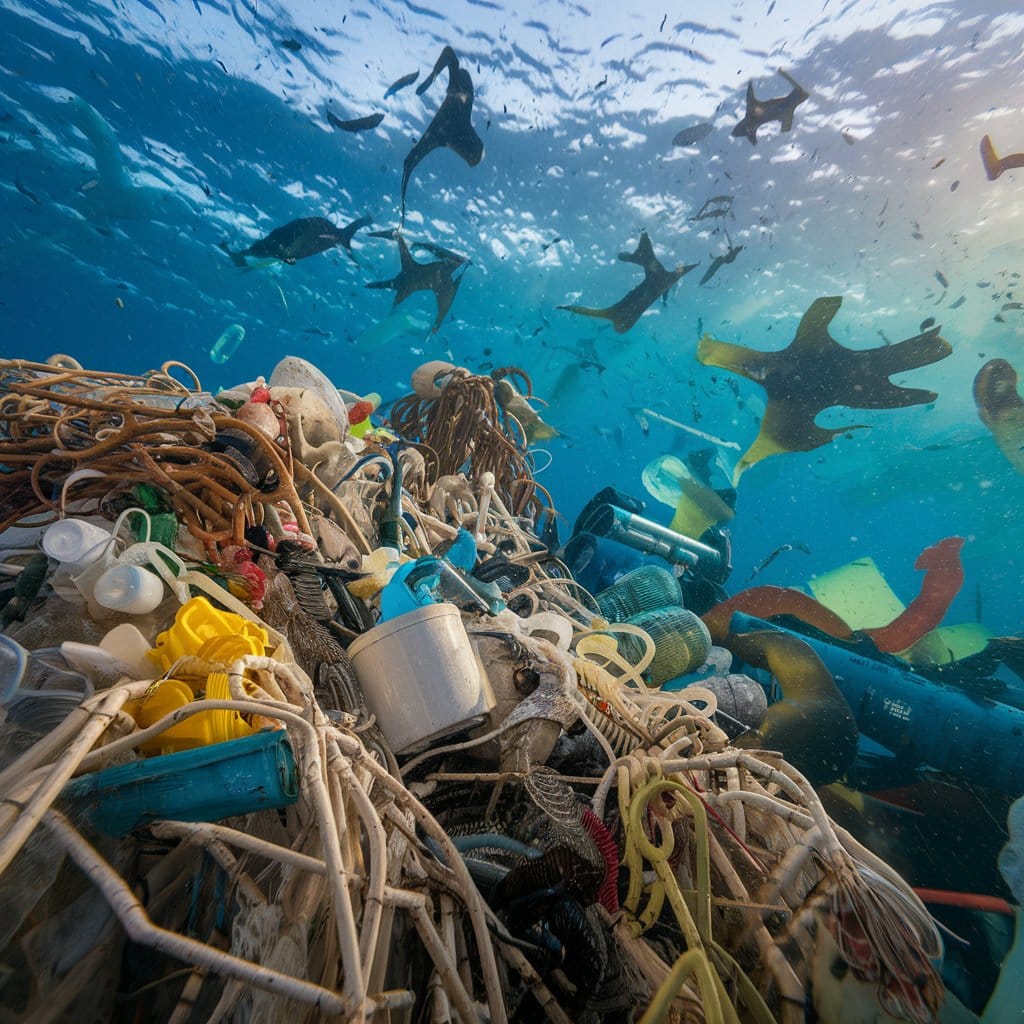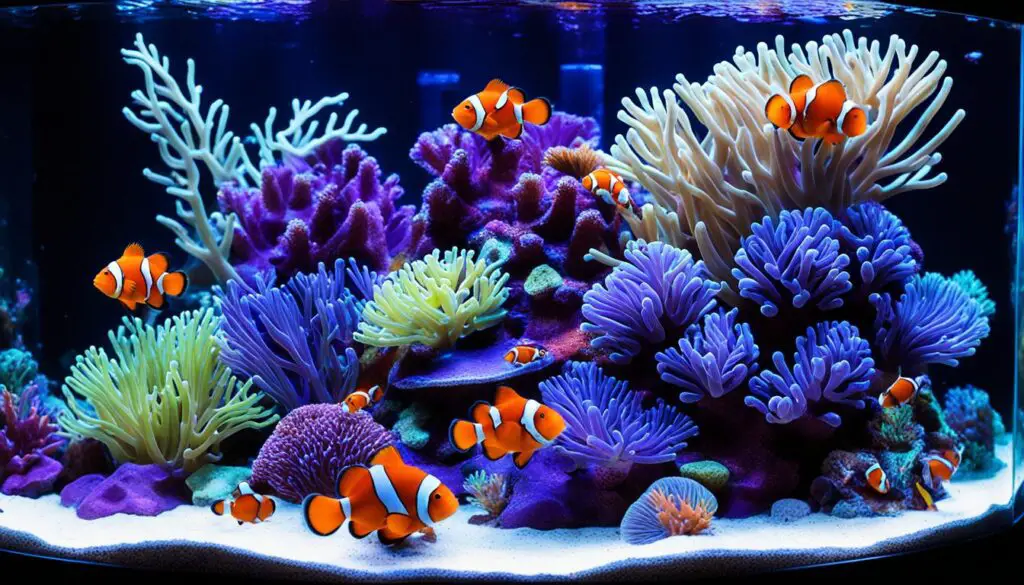How Long Do Octopus Live In Captivity
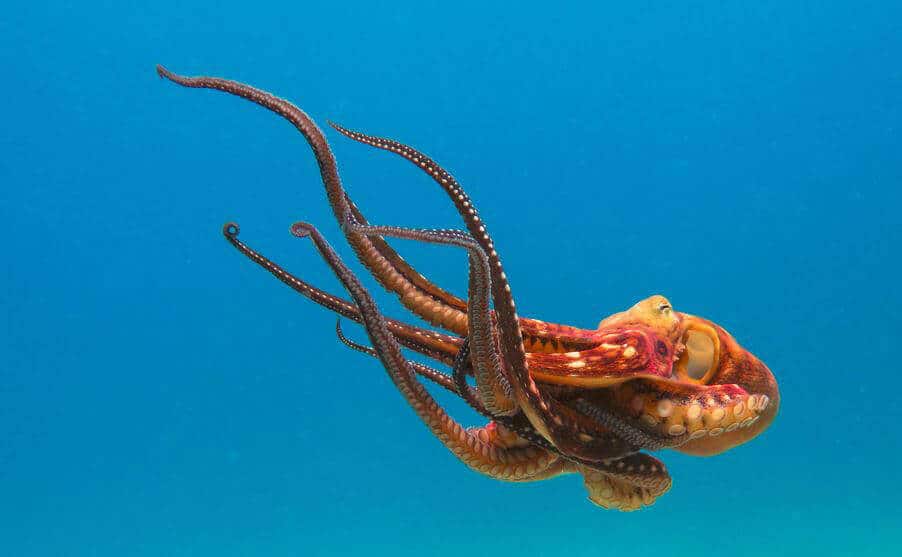
Introduction
How Long Do Octopus Live In Captivity: The enigmatic and highly intelligent octopus live, with its mesmerizing tentacles and uncanny problem-solving abilities, has long captivated the curiosity of scientists and aquarium enthusiasts alike.
Octopuses, known for their short life spans in the wild, have often posed challenges when it comes to their care and longevity in artificial environments. Unlike their distant relatives, such as turtles or parrots, octopuses are semelparous creatures, meaning they reproduce only once in their lifetime, a process that invariably marks the end of their existence.
We delve into the world of octopuses in captivity, seeking to uncover the factors that influence their longevity beyond their natural habitat. We will examine the various species of octopuses and their divergent behaviors, as well as the role of environmental conditions, diet, and stress in determining their lifespan.
Along the way, we will encounter stories of remarkable octopus individuals who have defied expectations, shedding light on the mysteries of their survival in controlled environments.
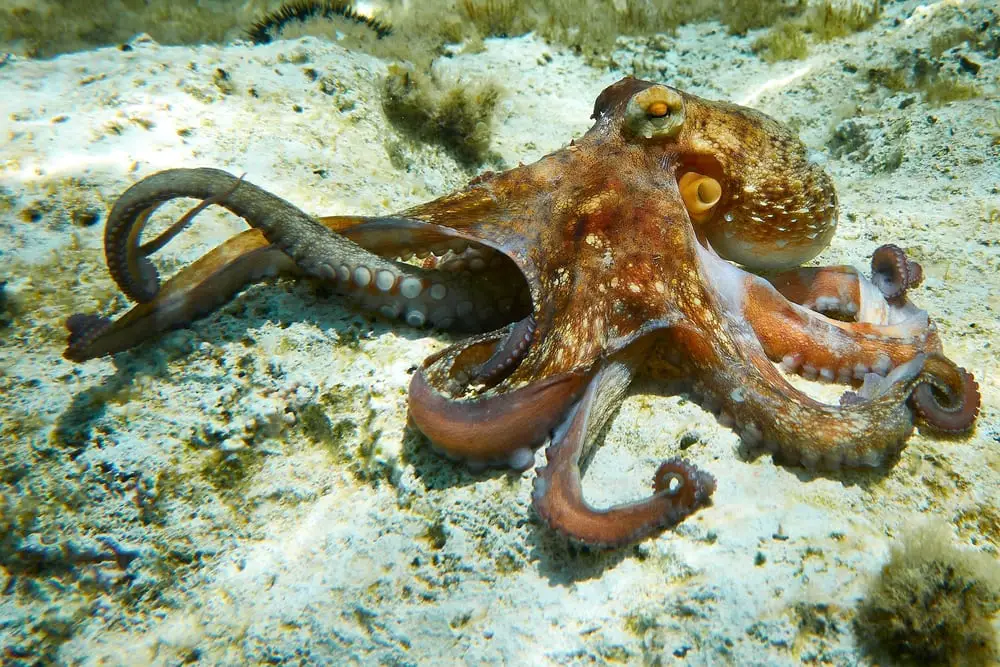
How long can an octopus live for as a pet?
Most species live only one to two years, and a newly imported octopus may have just weeks left. Some robust common species, such as the California two-spot octopus, get along relatively well in captivity. Others, such as the fabled but delicate mimic, do much worse.
Keeping an octopus as a pet is a unique and challenging endeavor that has gained popularity among dedicated aquarists and marine enthusiasts. The question of how long an octopus can live as a pet is influenced by various factors, making it a subject of intrigue within the aquarium-keeping community.
Octopuses, depending on their species, have differing lifespans in captivity. Generally, the smaller species, like the common dwarf octopus, may live for a year or slightly longer, while larger species such as the giant Pacific octopus can potentially reach three to five years if provided with optimal care.
Several key factors play a crucial role in determining the longevity of an octopus kept as a pet. Water quality, tank size, and appropriate hiding places are essential for their well-being. Proper nutrition, including a variety of live or frozen foods, is vital to meet their dietary requirements.
What is the oldest living octopus?
The longest living known octopus is the Northern Giant Pacific Octopus (Enteroctopus dofleini) who can survive between 3-5 years in the wild. However, a Deep Sea Octopus (Graneledone boreopacifica) was reported guarding its eggs for 4.5 years!
The largest and perhaps most famous octopus species, the giant Pacific octopus (Enteroctopus dofleini), has demonstrated impressive longevity. These giants are known to live up to five years or more, with some individuals in captivity reportedly surviving for around five to six years.
While these examples showcase the potential for octopuses to live longer lives, it’s important to note that octopus lifespans can vary significantly among species and individuals. Factors such as environmental conditions, diet, predation risks, and reproductive behaviors all influence their lifespan.
While there isn’t a definitive record for the absolute oldest living octopus, these incredible creatures have demonstrated the capacity for extended lifespans, especially when they are well-cared for in captivity or when they inhabit environments that minimize risks and provide ample food sources. Their mysterious lives continue to fascinate and inspire admiration in the field of marine biology.
How long do octopus live if they don’t mate?
Lifespan. The giant Pacific octopus has a long lifespan for an octopus — about three to five years. Octopuses in general usually live no more than a year! A giant Pacific octopus will live a solitary life until the very end, at which point it will seek out a mate, reproduce and die shortly thereafter.
Octopuses are intriguing creatures with a unique approach to reproduction that significantly impacts their lifespan. Octopuses are semelparous animals, which means they reproduce only once in their lifetime and typically die shortly after mating and laying eggs. This reproductive strategy is known as “senescence,” where octopuses invest all their energy into reproduction, leaving them with little time to live afterward. Consequently, the lifespan of an octopus that doesn’t mate is substantially longer compared to their counterparts that do.
In the absence of mating and reproduction, octopuses can potentially live for an extended period, depending on other factors like environmental conditions, predation risks, and available food sources. Some smaller octopus species may live for a year or two, while larger species, such as the giant Pacific octopus, can live for several years without mating.
However, it’s important to note that octopuses are still susceptible to various environmental challenges and predation in the wild, which can limit their lifespan even if they don’t engage in reproductive activities. In captivity, where these factors are controlled, octopuses have been known to live longer, with some individuals reaching several years of age without mating.
How long will an octopus live in captivity?
Roughly 1 to 5 years
It varies according to species, but octopuses, both wild and captive, live roughly 1 to 5 years. This short lifespan is a consequence of a reproductive strategy known as semelparity, meaning that octopuses breed only once in their lifetime and die shortly thereafter.
The lifespan of an octopus in captivity can vary widely depending on several factors, including the species, care conditions, and the individual octopus’s health. Octopuses are known for their relatively short lifespans in the wild, where they typically live from six months to a few years, largely due to their semelparous reproductive strategy, which leads to death shortly after mating and laying eggs.
In captivity, however, octopuses often have the potential to live longer. Small species, like the dwarf octopus, may live for a year or slightly longer, while larger species such as the common octopus or giant Pacific octopus can potentially reach two to three years or more with proper care.
The key to extending an octopus’s lifespan in captivity lies in providing an environment that mimics its natural habitat as closely as possible. This includes maintaining excellent water quality, appropriate tank size, hiding places, and a varied diet consisting of live or frozen foods. Stress should be minimized, as octopuses are highly sensitive animals.
Experienced aquarists and dedicated care can significantly impact an octopus’s wellbeing and lifespan. Some octopuses in well-maintained aquariums have even exceeded expectations, living for several years.
Are octopuses in captivity vs wild?
Octopus welfare:
They are wild animals, and so a life in captivity is restrictive, and cannot replicate the true ever-changing and vast ocean that they have evolved to live in. Octopuses are highly intelligent animals, and so they may get easily bored in captivity.
Octopuses in captivity versus the wild represent two vastly different environments, each with its own set of advantages and challenges for these fascinating cephalopods.
In the wild, octopuses inhabit diverse marine ecosystems, ranging from coral reefs to the deep ocean. Here, they face natural challenges such as predation, competition for food, and environmental fluctuations. However, they also enjoy a level of freedom and access to a wide variety of prey, allowing them to exhibit their natural behaviors and hunting strategies.
In contrast, octopuses in captivity reside in controlled environments like aquariums or research facilities. While captivity offers protection from predators and stable environmental conditions, it presents challenges related to confined spaces, limited social interaction, and potentially monotonous diets. Stress and boredom can be significant issues in captivity, as these intelligent creatures require mental stimulation and opportunities for problem-solving.
Efforts to replicate natural conditions in captivity, such as providing complex habitats and novel enrichment activities, are essential to ensuring the physical and mental well-being of octopuses. Successful captive breeding programs also contribute to conservation efforts and reduce the pressure on wild populations.
The lives of octopuses in captivity and the wild differ significantly, with each environment offering unique advantages and challenges. The conservation of octopus species, along with our understanding of their biology and behavior, relies on striking a balance between these two settings, where the welfare and conservation of these remarkable animals are of paramount importance.
Are octopus bred in captivity?
Octopuses are notoriously hard to breed in captivity as the larvae only eat live food and need very careful monitoring of environmental factors. Efforts to try to breed octopuses have been going on for decades.
Octopus breeding in captivity remains a complex and challenging endeavor. Octopuses are highly intelligent and sensitive creatures, making them difficult to maintain in artificial environments. Unlike many other marine species, octopuses have relatively short lifespans and unique reproductive processes.
Octopuses are semelparous, which means they reproduce only once in their lifetime, after which they die. Females lay thousands of eggs, which they carefully guard and aerate. The hatching process is critical for the survival of the young, as they are initially planktonic and extremely vulnerable.
Efforts to breed octopuses in captivity have been made by various research institutions and aquaculture facilities. Successful breeding programs are a testament to the dedication and expertise of marine biologists and aquarists. However, these successes are limited, and breeding octopuses in captivity is still far from being widely achieved.
The challenges lie in replicating the complex environmental cues, social interactions, and specific water conditions that octopuses require for successful reproduction. Additionally, the ethical considerations of keeping octopuses in captivity raise important questions about their welfare.
While there have been notable achievements in breeding octopuses in captivity, it remains a demanding and specialized field. Continued research and technological advancements are necessary to improve the success rates and ethical implications of this practice.
Are there any octopus species that have longer lifespans in captivity?
Octopuses exhibit a wide range of lifespans in captivity, influenced by factors like species, care conditions, and individual health. While most octopus species in captivity may live longer than their counterparts in the wild, some particular species tend to have longer lifespans when well-maintained in controlled environments.
One notable example is the giant Pacific octopus (Enteroctopus dofleini), one of the largest octopus species. In captivity, with proper care and a suitable environment, giant Pacific octopuses have been known to live for several years. Some individuals have reached lifespans of three to five years, and exceptional cases have even exceeded this range.
Another species with potential for extended lifespans in captivity is the common octopus (Octopus vulgaris). Under optimal conditions, these octopuses may also live for multiple years, often longer than their wild counterparts.
The success of these species in captivity can be attributed to their adaptability and the ability of aquarists and researchers to provide them with suitable environments, good nutrition, and minimized stress.
However, it’s important to emphasize that the longevity of octopuses in captivity is not solely determined by their species but also by the quality of care they receive. Providing an environment that mimics their natural habitat and addressing their specific needs remains essential to extending the lifespan of any octopus species in captivity.
What factors influence the lifespan of an octopus in captivity?
The lifespan of an octopus in captivity is influenced by a multitude of factors that collectively determine the overall well-being and longevity of these remarkable creatures. Some of the key factors include:
- Species: Different octopus species have varying lifespans in captivity. Smaller species may live for a year or two, while larger species can potentially live for several years with proper care.
- Environmental Conditions: Maintaining the right water quality, temperature, salinity, and pH levels in the tank is crucial. Octopuses are highly sensitive to changes in their environment, so stability is essential.
- Tank Size: Adequate tank size is essential to ensure octopuses have enough space to move and explore. A larger tank provides a more enriched environment.
- Diet: Providing a varied and nutritious diet is vital for an octopus’s health. Live or frozen prey items should be offered to meet their dietary requirements.
- Stress Levels: Minimizing stress is critical. Octopuses are sensitive animals, and disturbances, such as loud noises or frequent handling, can negatively impact their lifespan.
- Enrichment: Octopuses are highly intelligent and need mental stimulation. Providing hiding spots, toys, and puzzles can help keep them engaged and reduce boredom.
- Healthcare: Regular health assessments by experienced aquarists or veterinarians can catch and address any potential issues early on.
- Breeding: Octopuses typically have a limited lifespan due to their semelparous reproductive strategy. Those that are kept without mating may live longer.
- Predation Risk: In the wild, octopuses face predation. In captivity, this risk is eliminated, contributing to their potential for longer lifespans.
- Individual Health: The health of the octopus at the time of acquisition plays a significant role. A healthy octopus is more likely to live longer in captivity.
How do octopuses reproduce in captivity, and does this affect their lifespan?
Octopuses reproduce in captivity through a process that mirrors their natural breeding behaviors. Typically, it begins with the male octopus transferring a specialized arm, called a hectocotylus, into the female’s mantle cavity to deposit sperm packets. This can be a delicate and often carefully orchestrated process in aquarium settings to ensure successful mating. Once fertilization occurs, the female lays thousands of eggs, which she attaches to a protected surface within her den or enclosure.
Reproduction in captivity does not necessarily affect an octopus’s lifespan directly, but it can have significant implications for their well-being. The process of breeding and caring for eggs demands a considerable amount of energy and can be physically taxing for the female. It can lead to reduced appetite, increased stress, and in some cases, a shortened lifespan.
Moreover, once the female has laid her eggs, she stops eating and dedicates herself entirely to guarding and caring for them. This period of brooding can last several weeks to months, during which she doesn’t eat and may become weak. As a result, some octopuses in captivity may not survive the breeding process, although this can vary among species and individual animals.
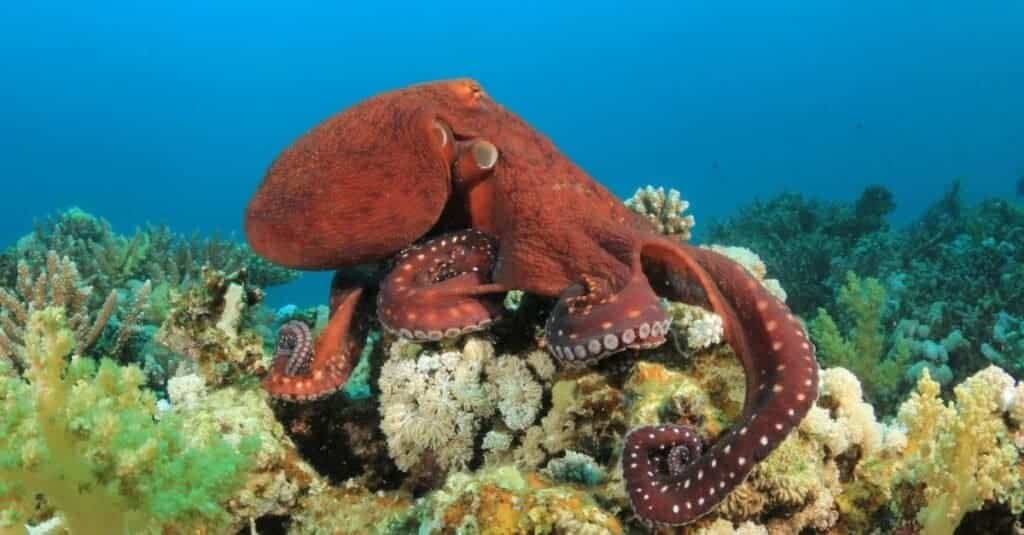
Conclusion
In the realm of marine biology and animal care, the question of how long octopuses live in captivity remains a subject of ongoing research and fascination. Our exploration into this intriguing topic has unveiled a complex tapestry of factors that influence the lifespan of these remarkable creatures when removed from their natural habitats.
Throughout this journey, we have learned that the longevity of octopuses in captivity is far from a one-size-fits-all scenario. Different species exhibit varying lifespans, with some octopuses achieving surprisingly extended lives in controlled environments. Environmental conditions, water quality, diet, and stress levels all play pivotal roles in determining an octopus’s wellbeing and overall longevity.
Moreover, the dedication of aquarium staff and researchers in providing the best possible care has been instrumental in pushing the boundaries of our understanding. Their tireless efforts to replicate natural conditions and adapt to the unique needs of individual octopuses have led to breakthroughs in husbandry techniques, enabling octopuses to thrive in captivity longer than previously thought possible.
While the question of how long octopuses live in captivity may not have a definitive answer, our exploration has revealed the resilience of these intelligent creatures and the potential for them to lead fulfilling lives beyond their natural habitats. The ongoing pursuit of knowledge in this field will undoubtedly continue to unravel the mysteries of octopus longevity, further enhancing our appreciation for these extraordinary marine animals.


